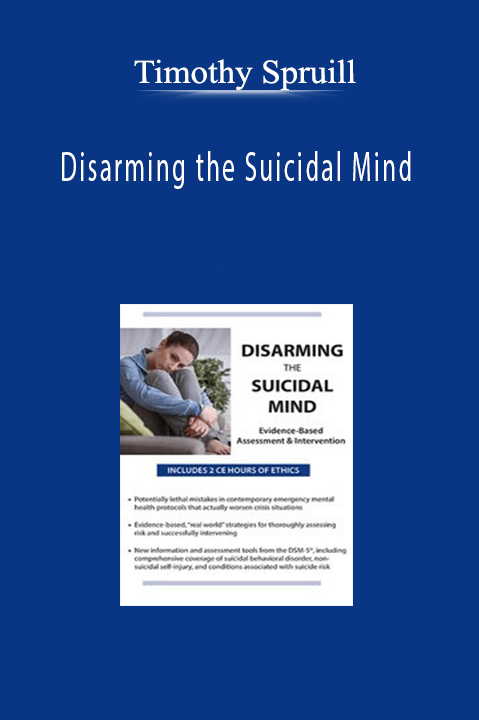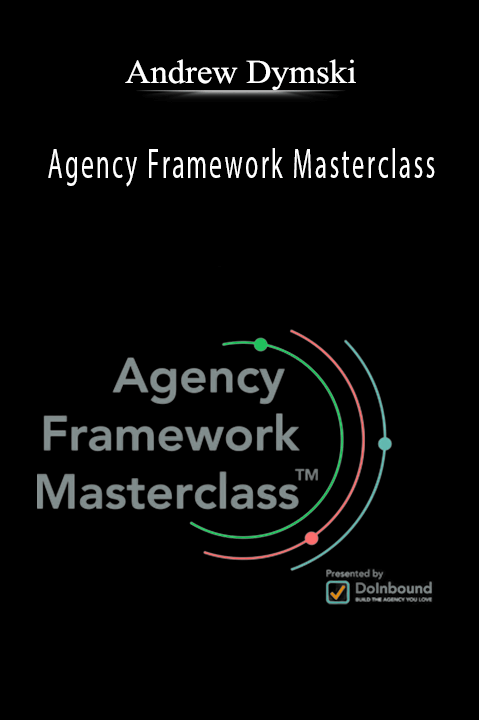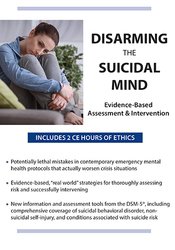Timothy Spruill – Disarming the Suicidal Mind: Evidence–Based Assessment and Intervention
From Triage to Tomorrow Suicide deaths have increased dramatically in recent years to 40,000 Americans annually, a leap that has been attributed variously to the Great Recession, wars in Iraq and Afghanistan, and access to guns and prescription pain killers – but what about medical error? Thirty-nine percent of suicide completers have been seen in an ER within the past year (many for mental health complaints and self-harm), while 59% of ER patients with injuries from deliberate self-harm do not receive a psychiatric assessment. Despite these trends, graduate training in assessment of imminent self-harm is often limited, offering little practical experience in counseling labs due to intake policies designed to avoid liability.
This recording offers a revealing look inside the complex and rapidly expanding knowledge-base concerning the epidemiology of suicide and self-harm, while exploring the most effective measures you can take to save your patients’ lives. Learn to recognize risk factors associated with suicide attempts, as well as long-term and imminent warning signs, and accurately assess self-harm and suicide risk. Discover evidence-based interventions and explore the challenges of treatment across populations, including patients with addictive behaviors. Finally, we will deconstruct the emergency mental health protocols of today and identify common thinking errors leading to diagnostic and intervention mistakes that actually worsen crisis situations.
- Analyze the rapidly expanding knowledge-base concerning the epidemiology of suicide and self-harm as it relates to clinical practice.
- Recognize risk factors associated with suicide attempts, as well as long-term and imminent warning signs to improve client level of functioning.
- Articulate common assessment and clinical intervention errors that can be lethal.
- Identify ethical issues related to suicidal assessment and involuntary psychiatric commitment.
- Implement comprehensive assessment/intervention strategies to put to practical use in session.
- Overcome clinical challenges with suicidal clients to improve treatment outcomes.
Get Disarming the Suicidal Mind: Evidence-Based Assessment and Intervention of author Timothy Spruill
INTRODUCTION TO THE GROWING PROBLEM OF SUICIDE IN AMERICA
- Need for concern: statistics revealing the increasing trend in suicidal ideation, attempts, deaths
- National data
- State-specific data
- Career risks for the professional counselor
- Factors contributing to the failure of adequate assessment and triage
- Inadequate training of physicians and professional counselors
- Inadequate funding for mental health (despite numerous parity laws)
- Shifting of the burden of assessment to emergency rooms
- Poorly trained law enforcement officers initiating involuntary admissions
EPIDEMIOLOGY — CONTRIBUTING FACTORS
- Risk factors
- Demographic risk factors (age, gender, ethnicity, etc.)
- Environmental risk factors (adverse childhood experiences)
- Addictions
- Mental illness
- Economic risk factors (employment)
- Warning signs
- Feeling alone—isolated from family/friends
- Feeling like a “burden” to others
- Little or no fear of death
- Red herrings
- Suicide notes
- Contingent suicide threats
- Cutting
- Pending divorce
- Limitations of the research and potential risks
ASSESSMENTS/MEASURES TO AID IN DETERMINING RISK LEVEL — A COMPREHENSIVE STRATEGY
- Mental status exam
- Collateral information
- Adults
- Relative lethality of plans/attempt (Risk/Rescue Scale)
- Hopelessness (Beck Hopelessness Inventory)
- Reasons for living (Brief Reasons for Living Scale)
- Adverse childhood experiences (A.C.E. Questionnaire)
- Teens and children
- Predictive/protective factors identified in the research
- Special populations
- Veterans
- LGBT
- Promising, novel methods for assessing risk
- Implicit cognitions—measuring implicit associations with death and suicide
COMMON INTERVENTIONS, MISTAKES, THINKING ERRORS & ETHICAL ISSUES
- Our natural tendencies to err
- Feelings of “rightness” are not reliable indicators
- External factors contributing to errors
- Internal factors contributing to errors
- Self-care is critical
- Two types of thinking (fast and slow)
- Dangers of lazy, “fast” associative thinking
- Substitution of easy-to-answer question for more difficult and complex question
- Type 1 vs. Type 2 errors (legal liability and ethical issues)
- Patient autonomy and self-determination
- Confidentiality limits
INTERVENTIONS AND TREATMENT PLANNING
- Non-judgmental, empathic listening
- Acknowledging reason for concern
- Taking advantage of ambivalence
- Evidence-based interventions to reduce subsequent suicide attempts
- DSM-5® new definitions and terminology
- Assess suicidal ideation at the start of every visit
- DSM-5 level one screening questionnaire
- Suicidal Behavior Disorder
- Non-Suicidal Self-injury
CHALLENGES TO ACHIEVING SUCCESSFUL TREATMENT OUTCOMES
- Means restriction
- Social support — supervision
- Follow-up counseling
- Exploring alternative responses should suicidal thoughts increase in frequency/intensity
WHEN LOSING A PATIENT TO SUICIDE — REMAINING RESILIENT AND MOVING FORWARD
Get Disarming the Suicidal Mind: Evidence-Based Assessment and Intervention of author Timothy Spruill
Instant Access Available
Product Content

Get Instant Access Timothy Spruill – Disarming the Suicidal Mind: Evidence–Based Assessment and Intervention at Offimc.click Now!
Sale Page: https://catalog.pesi.com/item/33902/
Delivery Information
- Upon ordering the product, a delivery email with download instructions will be sent immediately to you so that you may download your files. If you log in (or create an account) prior to purchase you will also be able to access your downloads from your account dashboard.
- It is a digital download, so please download the order items and save them to your hard drive. In case the link is broken for any reason, please contact us and we will resend the new download link to you.
- If you don't receive the download link, please don’t worry about that. We will update and notify you as soon as possible from 8:00 AM – 8:00 PM (UTC+8).
- Please Contact Us if there are any further questions or concerns you may have. We are always happy to assist!








7 reviews for Timothy Spruill – Disarming the Suicidal Mind: Evidence–Based Assessment and Intervention
There are no reviews yet.